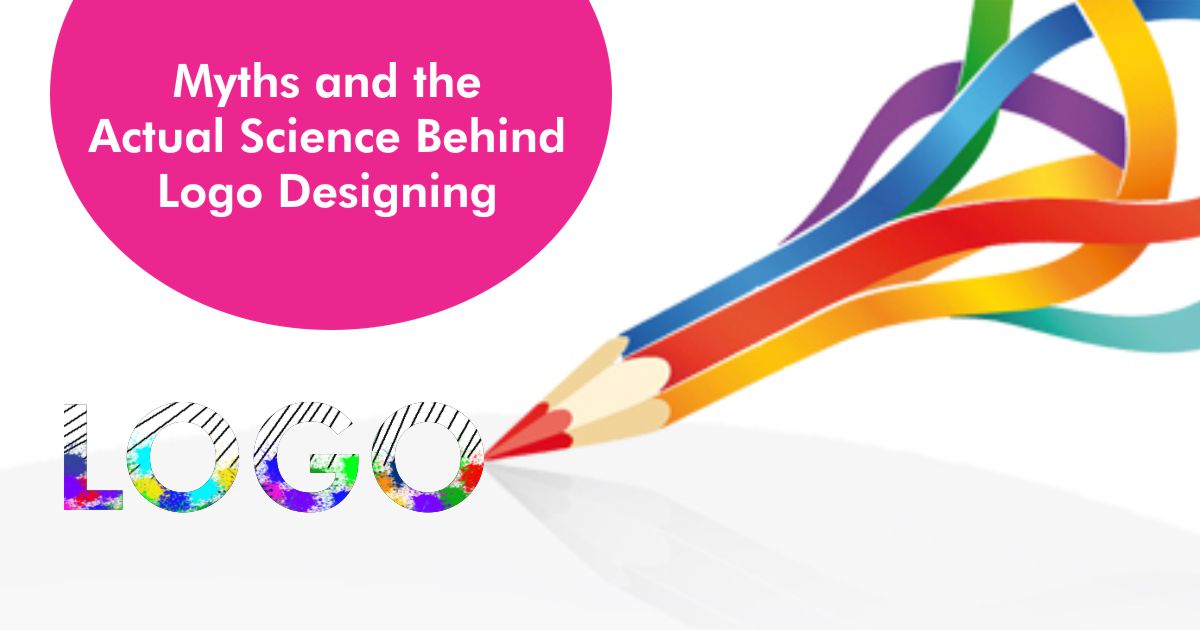
Everyone knows that Logo design has artistry behind it. But, does anyone know that logos can benefit from science? Well, when there are significant reasons behind the logo guidelines, there are also outdated design myths along the way. For example, the design myths include a simple logo is more effective than a complex one; the logo works best in white and black, the logo design should be constant, etc. These standards were used when there were limitations in printing but not anymore.
What is a Logo design?
Logo designing is the process of creating a unique symbol or graphic representation that represents a company, brand, or organization. It’s like making a visual signature that helps people recognize and remember a business easily.
Before creating a logo we need to design scientifically to make the logo design useful. There are four principles to adhere to while making a logo design such as attention, meaning, response, and memory. The ARMM model is an acronym to help you remember four cognitive events in proper order. A stands for Attention, R stands for Response, M stands for Meaning, and again, M stands for Memory.
Attention
An effective logo quickly grabs attention. It requires something extraordinary to crack the noisy world and gain people’s attention. In addition, it is always important to design a noticeable logo to publicize your brand in the end.
Response
An effective logo obtains an emotional response from the viewers. Elaborately, people should like it at a gut feeling without making judgments regarding the same.
Meaning
The logo design should express the meaning behind it. As a logo represents brand values, it is important that the meaning expressed through the logo design should align with those values.
Memory
You know that the logo design is effective if it is easily recognized and recalled. In the counterpart where people are unable to recognize or remember the logo, then the brand will be short-lived, indeed.
Take note of every principle and start designing based on evidence, and not on industry buzz. To focus on the rest of the details, you can play with the logo designs. Make it lovely, simple, timeless, and scalable keeping in mind the ARMM model. However, if it does not get high marks across the ARMM categories, it will not be effective. Correspondingly, you can forget the prior learning about what makes logo design successful.
All you need to know is ARMM.
As logo designers, it’s important to understand the design aspects, laws, and tools involved. To learn more about these aspects, explore the basic graphic designing course.
FAQ
1. What are the principles of effective logo design?
Effective logo design adheres to four key principles: Attention, Response, Meaning, and Memory (ARMM). These principles ensure that the logo grabs attention, elicits an emotional response, conveys meaningful brand values, and is easily remembered.
2. What skills are taught in the graphics design course for logo illustration?
The graphics design course for logo illustration covers a range of skills including logo design principles, typography, color theory, vector graphics software proficiency, and illustration techniques tailored specifically for logo creation.
3. How can I find the right logo design course for my needs?
When choosing a logo design course, consider curriculum, instructor expertise, hands-on projects, industry recognition, and student reviews. Opt for professional graphic design courses with modules dedicated to logo design for practical skills and real-world project experience.

